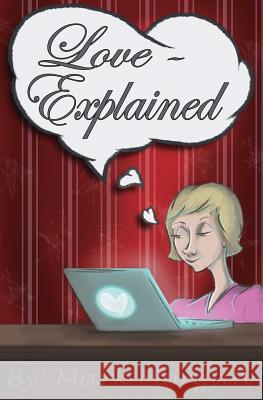Love-Explained » książka
Love-Explained
ISBN-13: 9780997477702 / Angielski / Miękka / 2016 / 94 str.
Love-Explained gives a single all-encompassing definition for what love is. I believe this is the only book ever to do this. I will describe the love thought process in a way that is humorous and easy to understand for youth and adult. Any other attempt to explain love always ends conceding that there are many kinds of love. But that's right where my book begins. I will explain romantic love, parental love, love of sports teams, activities, objects, etc., all in one theory. You would think that as important love is to everybody that we would have a single definition for it. But it turns out the great thinkers of the world are just as likely to be captivated and confused by love as anybody else. Most of the time we use poems, music, romance novels, etc., to stop ourselves from thinking about love in an educated way. I did not stop thinking. Not until I had a hypothesis that could verify it's truth by covering all circumstances, like any good theory. I guarantee I have done that. One of the ways we measure love is through our expectations. We have expectations for our relatives (for example) that they will; be there for us when we're in need, want what's best for us or be there when we get home. To contrast that, can you imagine having relatives who would not be there for you if you needed them or did not care what was best for you? How about a relative you have never met? Would you say this relative loved you? Most would say. One of the ways we recognize if we or others are in love is if our behavior is changing. If we normally do poker night or ladies night out and now we want to spend time with our girlfriend or boyfriend, we notice the change. If we try to be nicer, more available, faithful or cleaner than we would normally, we notice our changes. If the guys are saying their friend is whipped, they're noticing his change. To contrast that can you imagine not caring enough to change for your boyfriend or girlfriend. Not caring if you're clean, nice, available or faithful for them. Would you say you loved them? Most would say no. In the book Love-Explained, Mark explains how as we mature, society builds expectations in us for what love should be like. Emotions and changes in our behavior are then interpreted by society to call these changes love. We also fill in the blanks to create our own unique expectations for what love should be to us.











